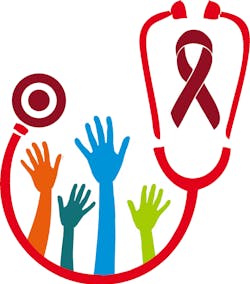Four children have remained free of detectable HIV for more than one year after their antiretroviral therapy (ART) was paused to see if they could achieve HIV remission, according to a presentation at the 2024 Conference on Retroviruses and Opportunistic Infections (CROI) in Denver.
The children, who acquired HIV before birth, were enrolled in a clinical trial funded by the National Institutes of Health in which an ART regimen was started within 48 hours of birth and then closely monitored for drug safety and HIV viral suppression. The outcomes reported follow planned ART interruptions once the children met predefined virological and immunological criteria.
Building on the observation that very early ART initiation may limit HIV’s ability to establish reservoirs of dormant virus in infants researchers began an early-stage proof-of-concept study of very early ART in infants conducted in Brazil, Haiti, Kenya, Malawi, South Africa, Tanzania, Thailand, Uganda, the United States, Zambia, and Zimbabwe. Previous publications from the clinical study showed that ART initiated within hours of birth was safe and effective at achieving and maintaining HIV suppression. A small subset of children achieved sustained HIV suppression and met other predefined study criteria for interrupting ART. These criteria include a durable absence of HIV replication from 48 weeks of ART initiation onward, no detectable antibodies near the time of ART interruption, and having a CD4+ T-cell count (the main immune cell target of HIV) similar to those of a child without HIV. Children who met these criteria, were older than 2 years and had stopped consuming human milk were eligible to interrupt ART.
Data presented at CROI summarized the experience of six children, all aged 5 years, who were eligible for ART interruption with close health and safety monitoring. Four of the six children experienced HIV remission, defined as the absence of replicating virus for at least 48 weeks off ART. One of them experienced remission for 80 weeks, but then their HIV rebounded to detectable levels. Three others have been and remain in remission for 48, 52 and 64 weeks, respectively. However, two children did not experience remission, and their HIV became detectable within three and eight weeks after ART interruption, respectively. The two children whose HIV returned at eight and 80 weeks experienced mild acute retroviral syndrome (ARS) with symptoms including headache, fever, rash, swollen lymph nodes, tonsillitis, diarrhea, nausea and vomiting. One child had markedly low white blood cells, which are a type of immune cell. Both the ARS and white blood deficiency resolved either prior to or soon after restarting ART. The three children who experienced viral rebound resumed HIV suppression within six, eight and 20 weeks of restarting ART.

